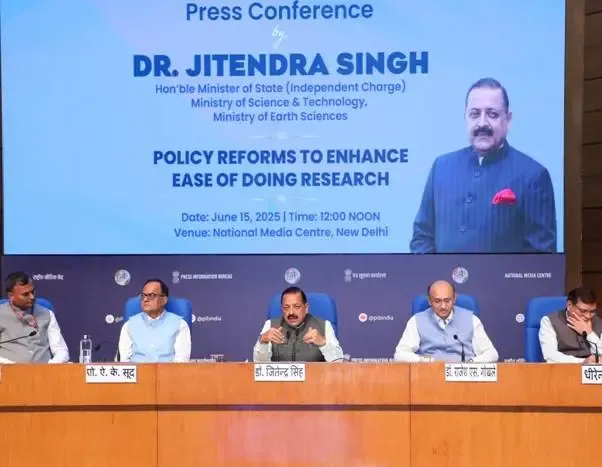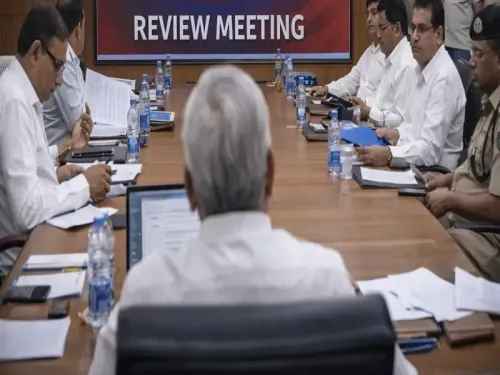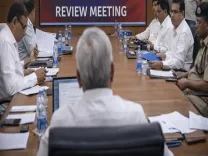How Is the Government Changing Funding Rules for R&D?

Synopsis
Key Takeaways
- Research leaders can approve tenders up to Rs 200 crore.
- Streamlined procurement processes to enhance efficiency.
- Reforms aim to support young researchers and startups.
- Increased autonomy comes with greater responsibility.
- Aligned with the National Education Policy for research-led learning.
New Delhi, June 15 (NationPress) In a significant advancement for India's research and innovation landscape, the government unveiled essential reforms on Sunday aimed at relaxing financial constraints and enhancing the operational efficiency of academic and research organizations.
A major aspect of these reforms is that leaders of research institutions are now empowered to approve international tenders worth up to Rs 200 crore without the need for multiple layers of sanction.
This initiative is anticipated to greatly accelerate the procurement of scientific instruments and materials.
During a press briefing in the capital, Union Minister of State for Science and Technology (Independent Charge), Dr. Jitendra Singh, stated that these long-awaited measures are designed to foster the ‘Ease of Innovation’ and ‘Ease of Doing Research’ throughout the nation.
The Minister further noted that this transformative change was made feasible due to the unwavering support and encouragement from Prime Minister Narendra Modi, who has consistently championed science and youth-driven innovation as fundamental components of India's development.
Previously, researchers and scholars encountered frustrating delays due to financial limitations and complicated procurement processes.
For instance, when an institution aimed to acquire advanced equipment from abroad, it had to navigate lengthy bureaucratic approval processes, which could postpone crucial research activities by several months.
The revised guidelines will now empower institutions to expedite such purchases, particularly those necessitating international tenders.
Dr. Singh emphasized that while increased autonomy is being granted, it comes with the obligation to uphold transparency and integrity.
"We are placing our trust in the scientific community to use this freedom judiciously. These reforms are anchored on a basis of trust and accountability," he remarked.
The changes were implemented following strong recommendations from the Economic Advisory Council to the Prime Minister and the office of the Principal Scientific Advisor (PSA), which pointed out that well-intentioned regulations were creating obstacles rather than facilitating scientific advancement.
This policy shift is also aligned with the National Education Policy (NEP) 2020, which advocates for flexibility in education and promotes research-oriented learning.
Dr. Singh underscored that if students are being empowered to determine their academic trajectories, research institutions should also be granted the liberty to nurture those aspirations.
He highlighted how earlier liberalization in sectors such as space and nuclear had yielded impressive outcomes.
"India's space sector is now valued at $8 billion and is projected to expand fivefold. We aim to replicate this success in the research and development domain as well," he stated.
The reforms are expected to particularly benefit young scientists, researchers, and startups, many of whom had voiced their concerns on social media regarding delays and obstacles in funding and procurement.










